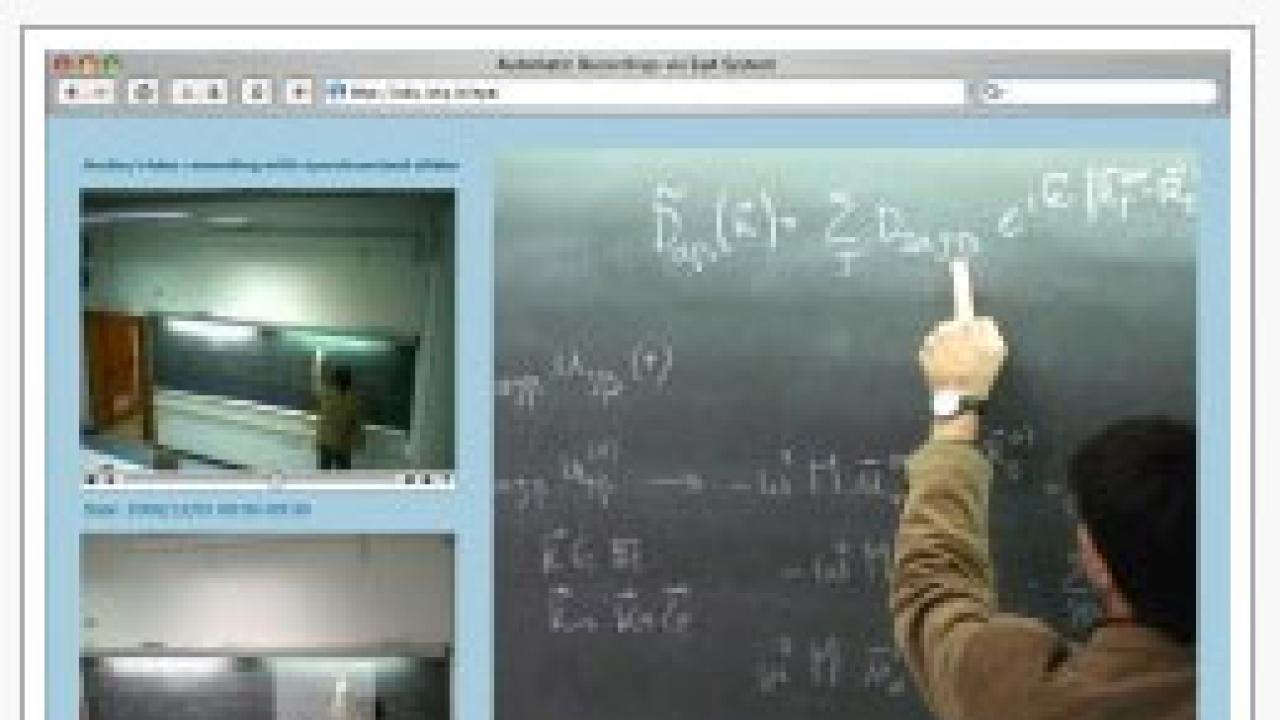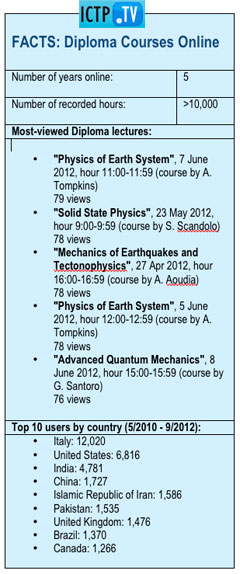
Sometime during the early evening of 20 September 2012, ICTP's
automated recording system quietly reached a milestone: it added
the 10,000th hour of video recording to its archive of ICTP
Postgraduate Diploma Programme courses.
The online courses archive of physics and mathematics lectures,
accrued over the past five years, is available for free on the
Centre's ictp.tv website. The courses are captured using the EyA
technology developed by ICTP's Science Dissemination Unit (SDU).
EyA is an innovative, automated audio/video/slide recording system,
developed by SDU to archive and share scientific lectures and talks
carried out using digital presentations (PPT, PDF, animations,
etc.) and especially traditional chalkboards found in
classrooms.
"It is rewarding to see how a simple idea has helped ICTP in its
mandate to support scientists and scholars around the world,
producing lots of benefits for many," said SDU Coordinator Enrique
Canessa.
 He described the EyA
system as robust, low maintenance and low cost, with the price of a
recorded hour totalling less than a cup of coffee. He credits SDU
staff Carlo Fonda and Marco Zennaro for providing crucial expertise
in the implementation and updating of the system.
He described the EyA
system as robust, low maintenance and low cost, with the price of a
recorded hour totalling less than a cup of coffee. He credits SDU
staff Carlo Fonda and Marco Zennaro for providing crucial expertise
in the implementation and updating of the system.
EyA is an attractive product for other institutes that want to
carry out affordable, automated recordings of lectures, conferences
or other educational activities. To that end, SDU has developed an
"openEyA" system that institutes can easily set up in their own
classrooms. In October SDU will hold its first openEyA users
meeting where participants from South America and Europe will
gather to discuss and exchange experiences on the use of openEyA
and its future developments.
These future developments include producing free educational video
lectures delivered in Spanish and Portuguese, as well as the
development of an algorithm to certify "virtual attendance" and
increase students' attention by requiring them to identify embedded
audio codes while viewing EyA lectures.
To attract a younger, more technologically savvy audience, SDU
will soon deploy free EyA-inspired Apps for mobile devices
(tablets, smartphones with Android and iOS). "We want to open the
universe of science to a new generation of learners and offer them
inspiration and on-demand access to knowledge according to modern
times," explained Canessa.
















